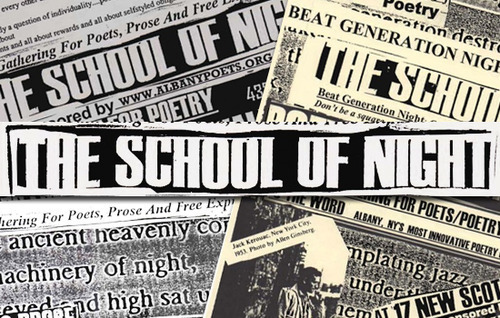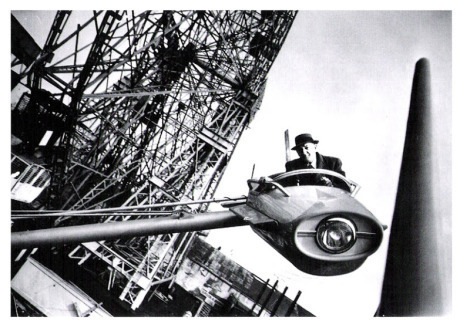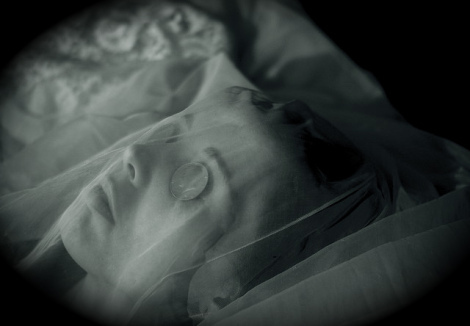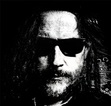R.M. Engelhardt's Blog: Burn Brightly, page 36
April 13, 2013
The corridors of the big hotels are empty and the cigar ...
The corridors of the big hotels are empty and the cigar smoke is hiding. A man comes down the stairway and notices that it’s raining; the windows are white. We sense the presence of a dog lying near him. All possible obstacles are present. There is a pink cup; an order is given and without haste the servants respond. The great curtains of the sky draw open. A buzzing protests this hasty departure. Who can run so softly? The names lose their faces. The street becomes a deserted track.
About four o’clock that same day a very tall man was crossing the bridge that joins the separate islands. The bells, or perhaps it was the trees, struck the hour. He thought he heard the voices of his friends speaking: “The office of lazy trips is to the right,” they called to him, “and on Saturday the painter will write to you. ” The neighbors of solitude leaned forward and through the night was heard the whistling of streetlamps. The capricious house loses blood. Everybody loves a fire; when the color of the sky changes it’s somebody dying. What can we hope for that would be better? Another man standing in front of a perfume shop was listening to the rolling of a distant drum. The night that was gliding over his head came to rest on his shoulders. Ordinary fans were for sale; the y bore no more fruit. People were running without knowing why in the direction of the estuaries of the sea. Clocks, in despair, were fingering their rosaries. The cliques of the virtuous were being formed. No one went near the great avenues that are the strength of the city. A single storm was enough. From a distance or close at hand, the damp beauty of prisons was not recognized. The best refuges are stations because the travelers never know which way to go. You could read in the lines of the palm that the most fragrant vows of fidelity have no future. What can we do with muscle-bound children? The warm blood of bees is preserved in bottles of mineral water. We have never seen sincerities exposed. Famous men lose their lives in the carelessness of those beautiful houses that make the heart flutter. How small they seem, these rescued tides! Earthly happinesses run in floods. Each object is Paradise.
A great bronze boulevard is the shortest road. Magical squares do not make good stopping places. Walk slowly and carefully; after a few hours you can see the pretty nose-bleed bush. The panorama of consumptives lights up. You can hear every footfall of the underground travelers. And yet the most ordinary silence reigns in these narrow places. A traveler stops, changing expression. Wondering, he approaches the colored bush. Without doubt he wants to pick it but all he can do is shake hands with another traveler who is covered with stolen jewels. Their eyes exchange sulphurous sounds like the murmuring of a dry moon, but a glance disperses the most wonderful meetings. No one could recognize the pale-faced travelers.
~ From The Magnetic Fields by Andre Breton And Philippe Soupault


April 12, 2013
Bill Murray Reads Wallace Stevens…
THE ALBANY WORDFEST 2013
 Reblogged from THE SCHOOL OF NIGHT, ALBANY NY:
Reblogged from THE SCHOOL OF NIGHT, ALBANY NY:
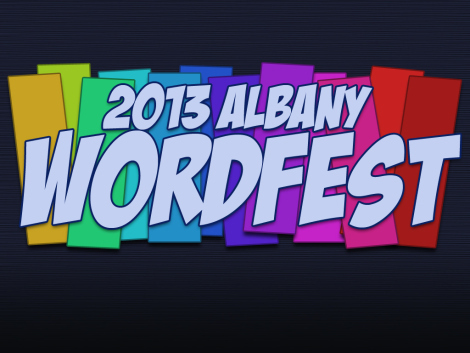
IT SO IT BEGINS ....THE ALBANY WORDFEST 2013
This is it. We made it to the 2013 Albany Word Fest! The upcoming week is a very busy one with over 100 poets scheduled to perform at the Word Fest events starting on Sunday at McGeary’s with the launch of Up The River. We certainly celebrate National Poetry Month…
AND SO IT BEGINS ... THIS WEEKEND!
April 11, 2013
The Inner Meaning of Poetic Form

It is becoming clear at this moment in American literary history that the most dynamic and promising trend in poetry today is the expansive movement, or the new formalism as it is also known. Periodicals, conferences, poetry collections, critical essays and monographs are recognizing and celebrating this turn in poetics; young poets either embrace the new mode or at least accommodate their theory to it. So this is a good moment to put this fashion to the test—to see whether it is just a fashion, or if it promises something deeper, some transformation in the nature of poetic art that will bring our practice closer to its true function. As one of the founders and spokespersons of the movement, I nevertheless recognize that mere technique in poetic form and narrative, however skillful and admirable, is not enough; great poetry has been written in free verse, and trivial poetry has been written in tight, ingenious meters and cleverly organized narrative structures. The promise of the new trend will be realized only if poets and readers are able to take the formal elements of poetry at their deepest level, as talismans or psychic technologies designed to unlock the gates between the human and the natural, the conscious and the unconscious, the present and the past, the rational and the chaotic, life and death. Or rather, even to invoke these dualisms is to be betrayed by a language that is not truly poetic, not truly capable of the deep science in which the dualisms disappear. When we respond to the meter or the mythic plot of a poem, we are doing so as a member of the species Homo sapiens, as a primate, a mammal, a vertebrate, a living organism, a marvellously intricate piece of carbon chemistry, a play of physical particles and forces, an involuted knot of spacetime. In other words, we are not confined, as we can be by unmeasured denotative statement, to the most recent level of biological evolution, that brought about the specialization of the linguistic areas of the left temporal cortex, but released into our entire evolutionary history. The pleasure of meter, as I have shown by the research reported in my essay The Neural Lyre, is based upon the three-second rhythm of the human information processing cycle or neural present, and mediated by the secretion of biologically ancient neurotransmitters. New research by Colwyn Trevarthen and Ellen Dissanayake shows that mothers and newborns conduct their prelinguistic conversations in a three-second antiphon of “motherese,” and that mammals conduct their continuous little dance of movement, attention saccades, and expressive action in a three-second cycle. But meter is important at much deeper levels yet. As the psycholinguists Michael Lynch and Kim Oller have shown, within the three-second short-term memory window there is room for about ten shorter beats, corresponding to syllables, or to the shortest interval in which human action reflexes can still operate; within this 1/3 second period there are nested about ten yet shorter beats, corresponding to the minimum interval at which we can perceive the order of two different sounds; and within this tiny moment there is room for about ten tinier ones, the minimum interval at which we can identify anything at all. The brain uses the meter in which neural firings are exchanged as a carrier of precise information about what is perceived or remembered, and the enzyme and RNA factories that construct the body’s proteins consult their central DNA library in an intricately hierarchical rhythmic pattern. Ilya Prigogine has shown that complex chemical reactions, especially those involving catalysts, have a rhythmic temporal structure, and quantum chemists and physicists have long known that matter can be described as the nodes where the different local periodicities of energy quanta find their harmonic resolution—matter as a kind of rhyme… . So when a poet uses and an audience hears meter, we are taking a first step into an organic recognition of our unity with the physical universe; we are, if you like, celebrating our participation in the being of Gaia herself. We are also affirming our solidarity with the whole past of the world, and making it possible for our creations to be the issue of generative forces that go far beyond the capabilities of our clever little linguistic centers. Poetry becomes an accelerated version of evolution itself, of that miraculous feedback among variation, selection, and heredity which produced the orchid, the sperm whale, the tobacco mosaic virus, the giant panda and the coral reef. Perhaps indeed this is the meaning of the myth of Orpheus, the first poet in the Greek mythology, who, like Solomon, or like Vyasa, the mythical poet of the Mahabharata, could speak the languages of animals and plants and stones. Orpheus’ journey to the underworld and back (as Virgil says, any fool can go down there, but to return—this is the labor, this is the task) is more than just a search for his lost wife Eurydice. Or rather, the search for his lost wife means the recovery of the organic connection with the rest of the universe. The point is that Orpheus can make his journey only because he possesses and can use his lyre, the instrument by which Greek poets kept the measure of their meter and gave their lines a rhyme. It is the lyre that opens the gates of the underworld; and it is when Orpheus fails to trust its magic, and looks back to see if Eurydice is following, that he tragically loses her forever. We can follow the mysterious logic of the myth still further; for the lyre of Orpheus (and of his father Apollo) was originally the invention of Hermes, who traded it for the caduceus, the snake-entwined rod by which he conducts mortals between the lands of the living and the dead. It so happens that the double helix of the two snakes is an exact model of the shape of the DNA molecule; and this is not just a coincidence, for the double helix is perhaps the best intuitive diagram of any feedback process, and DNA is the feedback process of feedback processes. If the lyre, then, is in some sense equivalent to the caduceus, we may infer that the meter of poetry is analogous to the meter of biological reproduction and evolution. This is the central insight of Rilke’s Sonnets to Orpheus. Other versions of this talisman are the magic flute of Mozart and da Ponte, the golden bough of Virgil, the metatron of Moses (also a combination of rod and snake), the drum of the Asiatic shamans, the bagpipe of the ancient Magyar bards—even perhaps the “Mcguffin” of Alfred Hitchcock. But this is perhaps to give too great an emphasis to meter. One could make much the same argument for narrative technique, that marvellous system by which time takes on its strange, unspacelike asymmetry. A story, like a melody, is any sequence of events that are retrodictable, that is, can be shown to have been inevitable once they have happened, but not predictable before they have happened; because the events themselves bring about a new kind of universe in which their antecedents now add up to an irreversible chain of causes. (The most crass example of this is the detective story, whose solution is obvious once the sleuth unveils it, but not before). In this sense we may perhaps take the rod of Hermes’ caduceus to mean the fixed retrodictability of a story, and the snakes to mean its protean unpredictability. The unpredictability of a story is what makes us want to know what happens next—and this is why the Sultan spares the life of the storyteller Sheherezade, and Minos spares the life of Orpheus. In this light the duality of meter takes on a deeper significance still. The fixed pattern of stressed and unstressed syllables (or long and short syllables, or tone-changing and tone-unchanging ones as in Chinese verse) bears the same relation to the varying pattern of spoken cadence that floats above the fixed framework, that the predictable bears to the unpredictable elements of a story. Or one could even say that meter was micro-story, or that story was macro-meter. Thus if we are to take seriously the return to meter and narrative proclaimed by the new formalists and expansivists, a whole new set of intellectual, imaginative, and social responsibilities open up for the poet. Or perhaps it would be more accurate to say that the old responsibilities will come back in a new form. Essentially, the poets of the coming era must be shamans. A shaman is not just a private person voicing his or her personal angsts or expressing purely personal esthetic, philosophical, or political opinions. A shaman speaks to, and for, a whole culture, as the unifying mouthpiece of its own deepest collective musings, and as its representative when it consults its own dead sages and sibyls. Moreover it is part of the duty of the shaman to be to some extent public, even popular, to sell his or her visions in the marketplace, to hear and respond to the needs and yearnings of the patrons whose conscience they are. The new shaman must also learn the dialects of the tribe—and that tribe is now global, the human race itself. The most important dialects are the ones that are shared among all peoples, and are taken as legitimate media of exchange and criteria of agreement—trade, law, technology, and above all, science. Science is the way we learn the languages of all of the rest of nature, beyond our human circle, and thus is even more important for a new poet to know than trade and law. Technology connects science with the others—the special technologies of the poet are meter, storytelling, and imagery (which I have not dealt with here because it is so well handled elsewhere). Once we adopt the responsibilities of the shaman, many wonderful things that as poets we find increasingly difficult to achieve will suddenly become easy. One of them is finding a subject: we are engaged in the work of educating and healing our fellow-citizens, and we need only speak of what they need to know and hear. Another is being funny. The moment we recognize ourselves as the peculiar kind of primate mammalian animal that we are, trapped and incarnate in the material slapstick of physical existence, forced in the theater of human miscommunication to give and receive gifts from others in order to survive at all, laughter is hard to avoid. Shakespeare, perhaps the greatest shaman of all time, who fulfills all the difficult criteria I have tendentiously laid out here, knew all this very well. Another suddenly available resource will be vision. Instead of having to strain our humdrum daily perceptions for some little plankton-like smear of insight, we will have almost the opposite problem: how to make the miracle of existence, with its humming and ringing levels of concentric complexity, local enough to convey in an image or anecdote. Finally, the true shamans will find that rarest of all contemporary resources: a real audience, a public not drawn to the poet in hopes of recognition for its own poetic efforts, nor attracted by the fading glamor of another era’s poetic achievements, nor hoping to share a fellowship of social and cultural failure; but coming together in the deeply pleasurable, ancient, ad hoc ritual of world-construction.
~ Frederick Turner

Albany, NY’s Open Mic For Poets & Writers Returns Tonight!
April 10, 2013
Support Independent Publishing (And Poetry!)
Ge...


Support Independent Publishing (And Poetry!)
Get your Copy Now …
Biography
Poet- Writer R.M. Engelhardt’s work over the years has been published and has R.M. Engelhardt’s work has appeared in many journals & magazines in both print and on the net including in Retort, Rusty Truck, Sure! The Charles Bukowski Newsletter, Thunder Sandwich, The Boston Literary Review, Full of Crow, Fashion For Collapse, 2nd Avenue Poetry, The Outlaw Poetry Network & in many others.The Resurrection Waltz is his 13th book of poetry. www.rmengelhardt.com

Where Is American Poetry Going?

What recent trends in American poetry do you find troubling or worrisome?
Aliki Barnstone: I find poetry wars troublesome. These particular issues of aesthetics should not divide poets. I find the polarization simplistic and limiting to anyone who takes on the label “formalist” or “experimentalist.” The imagination must be free to go anywhere and should not be compelled to follow someone else’s dictates. Furthermore, I find that American poetry wars are American in the worst possible way, and repeat the puritan history of demonizing those who prefer not to conform. The notion, which I’ve heard laid down as a prescription, that the self and identity should be abolished in favor of collectivism is extremely alarming to me, since the implication is that any kind of ethnic, racial, gender, or national identity is suspect.
John Bradley: The appointment of Dana Gioia to head the National Endowment of the Arts signals that, once again, artists will be under pressure to purge their work of all social commentary.
Nick Carbo: The backlash against ethnic poets and the complaint that some poems are “too ethnic.”
Brian Clements: Trends among the poems themselves are never worrisome to me. We’re all going to follow our individ- ual obsessions anyway, so why bother worrying about it? Don’t get me started on what bugs me about the businesses of pub- lishing, awards, and academic hiring. But that doesn’t really have anything to do with poetry, or does it?
Jon Davis: The ongoing wheezing and creaking that once called itselflanguage poetry istroubling, as is the postmod- ern shrug in all of its guises—irony, flippancy, loss of self, etc. But the most troubling ongoing trend is the slam, bout, per- formance nexus, particularly when it marches the young onto the stage with nothing but venom, broad gestures, and a head full of hackneyed abstractions and then rewards them with applause. The pleasure of such instantaneous acclaim so eas- ily bought is piping our talented youth into the hills away from the village of study, hard work, and accomplishment. It strikes me as a new species of child abuse.
Annie Finch: The swallowing of respected trade publishers by megapublishers with no commitment to literary books, and the resulting neglect of poetry reviews in mainstream publications available to general audiences.
Sam Hamill: Too much solipsism, too much fragmented work of mere sensibility, too much safely comfortable apolitical poetry that accepts no serious consequence or responsibility.
Paul Hoover: I don’t find much that is worrisome in poetry; it’s the political life of the country that scares me.
John Hoppenthaler: What troubles me the most is the wave of generally young (but not always) poets who feel compelled to con- tinue a petty and gratuitous argument for some “experimental” mode of poetry over what they insist is a dull period-style poetics formed in academic workshops. This strikes me as the worst sort of antidemocratic (not to mention simpleminded and arrogant) argument to demonize a style that doesn’t suit one in order to val- orize another that does. And this does cut both ways, with pro- moters of a more direct style belittling those who are trying something different. We need to think in terms of “poetries” rather than poetry, which will make the neighborhood a better, richer place to live.
Peter Johnson: The continuing saga of the poet-as-celebrity; superficial pleasantness driven by fear and careerism; the triumph of the prose poem.
George Kalamaras: I find troubling a continuing distrust of imaginative and surrealist poetries, as well as a seemingly strict adherence to more strictly defined genres in which genre-bending forms like the prose poem are often suspect.
Christine Boyka Kluge: Although entertaining, the growing number of poems using excessive wordplay and cleverness as a sub- stitute for ideas seem shallow to me.
Martin Lammon: Although it’s not such a recent trend any- more, I’m still troubled by poets who call for a “return to verse,” or other such slogans. The “New Formalism,” or whatever other term one wants to use, essentially describes a reactionary impulse, a desire to return to a “golden age” of poetry that never was. There are poems by Robert Frost, Wallace Stevens, and Elizabeth Bishop that I love, but their poems do not represent some poetic principle or aesthetic that contemporary poets should emulate, as some would propose. If a poet today chooses to write so-called formal “verse,” that’s fine. There’s room enough for aesthetic choices. But one choice cannot preclude all the other paths that poets may fol- low.
Dana Levin: A focus on language-making and virtuoso vocab- ulary at the expense of having something to say, along with “con- fessional” being a dirty word, especially as “confessional” seems to have become a synonym for “emotional.”
Morton Marcus: I’m still deeply disturbed by the solipsistic trends in American poetry, where the poet writes, it seems, to tickle and entertain his mind. Video games for the literati. Where’s the earthiness, the visionary, the need to speak of the deep winds, both dark and light, that roar around the heart with the voices of our ancestors?
Jim Moore: Poems that seem to have no purpose other than to demonstrate their own ingenuity.
Richard Robbins: The exaggerated “centrality” of language poetry created by the Iowa/Harvard critical axis. Most of that stuff is what Richard Hugo used to call “a lot of over-worrying about the obvious.” The ever-expanding gulf created between community reading series (reasonably affordable means of allowing the public to access the literary arts) and the celebrity tours (with restricted public access and skyrocketing fees sent even higher by celebrity literary agents). The growing assumption that poetry publishing is not an enterprise supported by entities that take economic risks on manuscripts they believe in, but rather that poetry publishing is more like the NCAA basketball tourney pool, where all with man- uscripts will enter with a $10 fee and one will come away with the prize.
Katharine Soniat: How many of the “contests” and presses are focusing on incoherent language or experimental poetry seems to be the same judge (of this persuasion) for many national contests.
Virgil Suarez: The elitists are still elitists.
Thom Ward: How to get other human beings who are, in William Stafford’s phrase, “awake people” to wake up to reading and listening to more contemporary American poetry and poetry in translation. The good folks who attend local theater, art muse- ums, and jazz clubs, who take that occasional pottery class at the YMCA—how do we get more of these people (who have no ambi- tion to become poets) more interested in buying contemporary poetry books and literary journals and attending poetry readings, especially by “emerging” or “unknown” poets? Why do so few of these “awake people,” who speak intelligently about contempo- rary music and the visual arts, know and care so little about poetry?
Matthew Zapruder: A period style that consists of requisite ambiguity, complexity, genuflection to tired principles of post- modernism, and mystification, all of which cover up a lack of genuine commitment to an idea or emotion; a creeping profes- sionalization, especially among younger poets.
_________________
AUTHOR:
Ray González is TBR’s poetry editor.
Note: This is part 2 of a survey; part 1 will be found in the March/April issue of TBR, Vol. 24, #3 2004.


it’s just a ride.
The world is like a ride at an amusement park, and when you choose to go on it, you think it’s real, because that’s how powerful our minds are. And the ride goes up and down and round and round and it has thrills and chills and it’s very brightly coloured and it’s very loud. And it’s fun, for a while.
Some people have been on the ride for a long time, and they begin to question: ‘Is this real? Or is this just a ride?’ And other people have remembered, and they come back to us and they say ‘Hey! Don’t worry, don’t be afraid, ever, because… this is just a ride.’ And we kill those people.
‘Shut him up! We have a lot invested in this ride! Shut him up! Look at my furrows of worry; look at my big bank account, and my family. This has to be real.’ It’s just a ride. But we always kill those good guys who try and tell us that. Ever notice that? And we let the demons run amok. But it doesn’t matter, because… it’s just a ride, and we can change it any time we want. It’s only a choice. No effort. No worry. No job. No savings and money. Just a choice, right now, between fear and love. The eyes of fear want you to put bigger locks on your door, buy bigger guns, close yourself off. The eyes of love, instead, see all of us as one.
Here’s what we can do to change the world, right now, into a better ride. Take all that money we spend on weapons and defence each year and, instead, spend it feeding, clothing and educating the poor of the world, which it would do many times over, not one human being excluded, and we can explore space together, both inner and outer, forever. In peace.
~ Bill Hicks


April 9, 2013
Instructions & invocations in preparation for the trip across the great river Styx
1} Place two coins (one over each eye) before you start your journey to give to the ferryman.
Your all seeing God may be waiting but just like an amusement park or a Disney film, it’s gonna cost you.
*Cancel that. Apparently they no longer accept coins and have now jimmied the price up to two hundred dollars due to inflation.
*Note 1 To The Unacknowledged: The ferryman hates the band “Styx”. So please DO NOT FUCKING sing!
2} Always carry a ham sandwich or a cream cheese bagel on your person at all times. The Ferryman can be bribed.
3} Poets ARE NOT allowed on the boat. However, if you are a critic that’s acceptable as long as you kiss ass well.
4} Hellfire. Brimstone. Satan? Perhaps you have taken the wrong turn. If this happens or this where your journey ends, then try smiling a lot and suggest a lot of your friends.
*Note 2: Hell is full of lawyers and politicians so suggest somebody else other than like your next door neighbor or an ex.
Keep your hands in the boat at all times!!!! You don’t know where that water’s been.
Bring a translation book, they all speak fuckin’ Egyptian.
*Note 3: If you are a drunk female when you pass or a gay guy DO NOT under ANY CIRCUMSTANCES lift the Ferryman’s loin cloth or robe! And DO NOT make “Boner” jokes!
And yes. Smoking IS allowed…after all well, you’re dead.
Have A Nice Afterlife !
_____________________
~ R.M. ENGELHARDT


Writers Are Desperate People …
Burn Brightly
~ R.M. Engelhardt ...more
- R.M. Engelhardt's profile
- 23 followers





